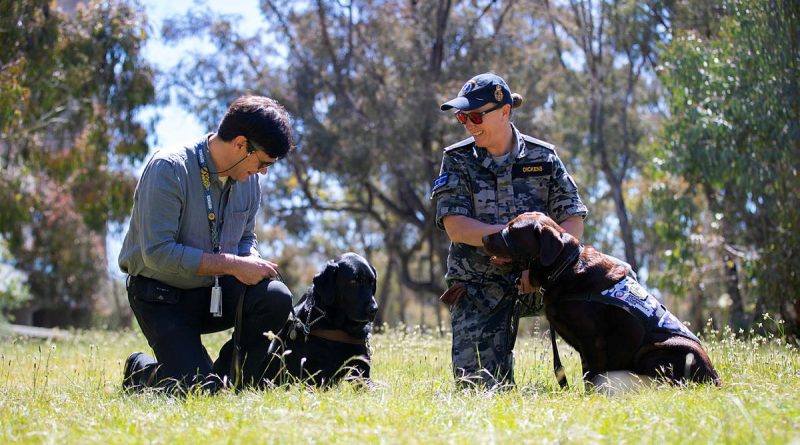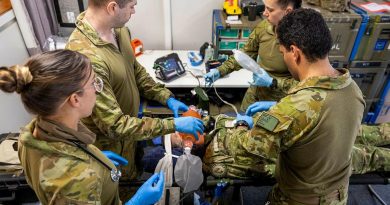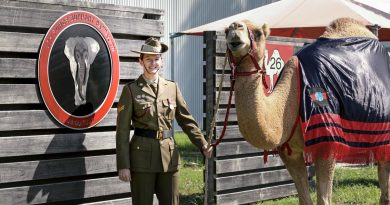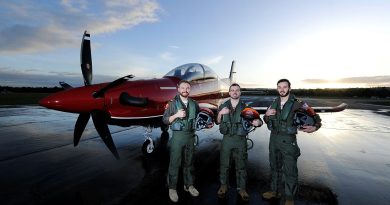Finding the ability to keep working

CAPTION: Scott Grimley with his guide dog, Dudley, and Able Seaman Taryn Dickens with her assistance dog, Gigi, enjoy some time in the sun. Story and photo by Private Nicholas Marquis.
On the International Day of People with a Disability, two Defence employees tell their stories:
Dudley the black Labrador turns up to work each day with one job – to be the eyes for external analysis manager Scott Grimley.
Once at his desk, Mr Grimley uses readability software to complete his work.
The public servant was declared legally blind two days from his 28th birthday and diagnosed with retinitis pigmentosa.
“I found it too hard to drive and thought there was something weird going on,” Mr Grimley said.
“I even went to Sydney to try and get a professor to tell me I wasn’t blind.”
Mr Grimley was medically discharged from the Army Reserves in 1990, forced to resign from his job with Australia Post and spent the next three years unemployed.
He was a guide at the National Museum for 19 years and now works for the Office of the Defence Seaworthiness Regulator.
His first day was made easy when he arrived to find appropriate computer programs were already installed.
“I could do all my compulsory training on the first day,” Mr Grimley said.
“Defence provided myself and others with a laptop so we can work at home if needed.”
Mr Grimley got Dudley in 2018 after encounters with trees, signs and a wall.
“He’s my eyes,” he said.
“I’ve had people come up and pat him while he’s guiding me.
“I have to tell them, ‘please don’t poke me in the eyes’.”
Mr Grimley uses Fusion software which allows for visual enhancements and screen reading.
In 2016, after skin cancer surgery, Defence allowed John Dalton to work remotely so he could still receive income and hold onto leave.
“I was in Melbourne and was unable to come back to work for six to eight weeks,” Mr Dalton said.
“Within a couple of hours, I was set up at HMAS Cerberus to work through my post-surgery recovery.”
After undergoing a third heart surgery in July, Defence offered Mr Dalton a secondment where the workload would not be as strenuous while he recovered.
Another APS worker, John Dalton, has permanently dislocated shoulders and arms that go no further than where his elbows would be.
Working for Defence since 2010, Mr Dalton has Holt-Oram syndrome, which affects upper limb development as well as heart and lungs.
Mr Dalton uses Dragon Naturally Speaking, an assistive dictation technology to do his typing, which he said is a learning curve in speaking how you write, including punctuation.
“I can’t think of a situation [with Defence] where I have been second guessed in my position,” Mr Dalton said.
“In previous jobs, I have been seen as the lesser in the hierarchy.
“Fortunately, this was an unexpectedly good thing, that felt odd because I hadn’t felt it before.”
International Day of People with a Disability is celebrated on December 3, recognising the achievements of disabled people in the workforce.
.
.

.
.





